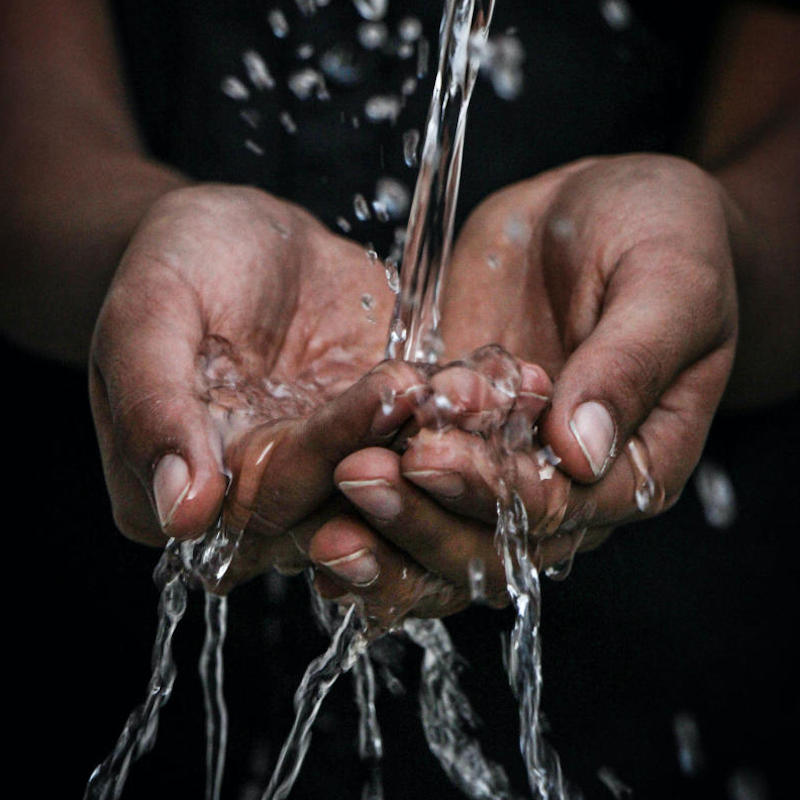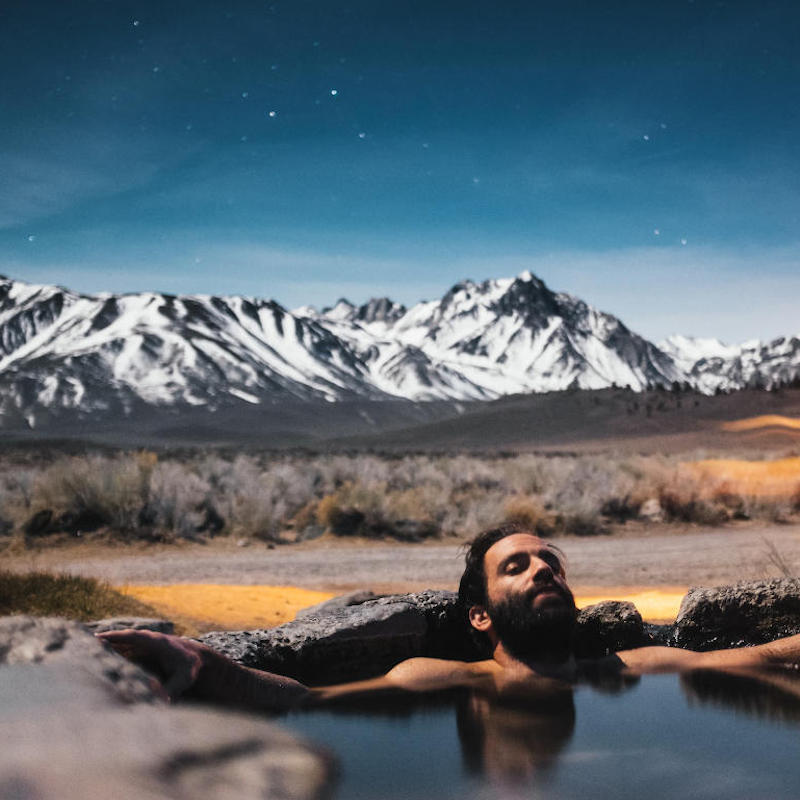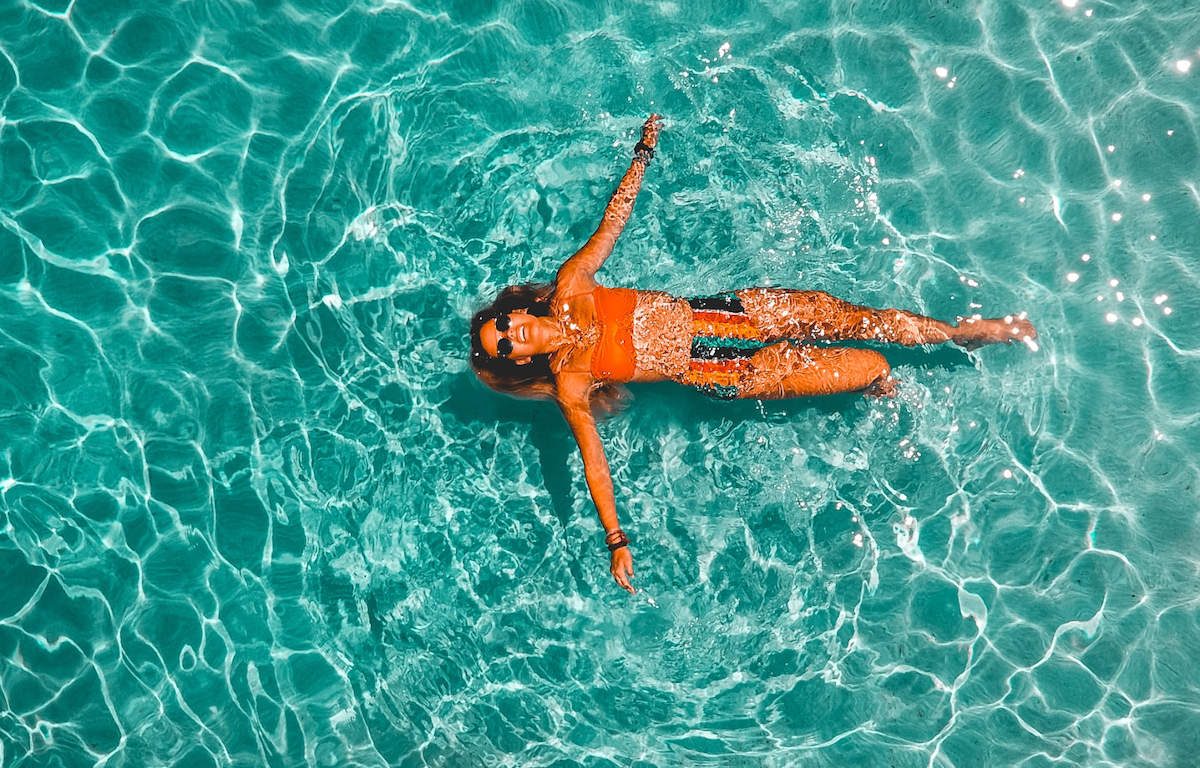Water in its many forms is essential to our self care regimen. Often take for granted when we have it in abundance, but as a resource that is becoming scarce, now is a great time to better understand our relationship with water. We must ensure to consume enough of it to keep our mind and body in optimal function. Find ways to play and be active in or around the water for added enjoyment. And be mindful of the rituals we use to cleanse our bodies and relax. Water is a daily necessity for a balanced self care lifestyle.
Drink enough water
Water is vital to all life. With our busy lifestyles, it is certainly easy to forget to sip away at enough fluid in a day. The minimum recommended amount we should consume as adults is approximately two litres, or 64 fluid ounces. The actual amount you need varies by the amount of physical activity that you do, if the temperature is too hot or dry, your age, and how healthy you are.
Benefits of H2O
Staying hydrated is critical to proper mental and physical functioning. Water stimulates the flow of nutrients and hormones that release those feel-good endorphins, like serotonin, that you need to feel happy. Physiologically, it triggers your parasympathetic nervous system. This is responsible for the body’s rest and digest response, which can help calm you down. This also helps you experience more comfortable digestion, with less heartburn, and easier bowel movements with more regularity. Drinking water helps your body stay hydrated and refreshed. This maintains your skin’s elasticity which helps soften lines, minimizes scarring, and keeps you looking more youthful.
Adequate water consumption increases energy and focus, next time you feel a little sluggish, reach for a glass. You’ll also notice that your vocal cords feel and sound better when you stay hydrated. Consuming water also helps cleanse toxins from your body, it lubricates your joints, and it helps regulate both your body temperature and your blood pressure.

If you struggle to drink enough fluids, start by using a water bottle you can carry it around with you. Alternatively, use a fun glass that will make you feel good every time you refill it. Set an alarm to remind yourself to drink if you find you forget to do it. Keep a tally if you are not sure if you are consuming enough. You can also find apps that you can download to help you keep track of how much you drink. Eat water-rich fruits and vegetables to make it easier to reach your goal. Avoid drinking too much before going to sleep so that you aren’t spending half the night needing to take a bio-break.
Dehydration
If you don’t consume enough water, dehydration can concurrently increase your risk of anxiety and depression. Even mild dehydration can lead to dizziness or light-headedness, fatigue, headaches, dry eyes and/or mouth, and mood changes like irritability. Brains deprived of enough hydration can experience short-term memory loss and impaired cognitive ability. Severe dehydration can lead to dry and flaky skin, shock, changes in heart rate, altered kidney function, nausea, vomiting, constipation, muscle weakness and cramps. Water alone in these cases would normally not be enough as there is a severe electrolyte imbalance. Adding an electrolyte powder can help restore levels faster. Note that professional medical advice is recommended when experiencing dehydration even in moderate levels.
Your urine is a strong indicator of your hydration level. Passing small amounts infrequently, or intense yellow-colour can both be signals you are dehydrated. If you experience thirst, it is a definite sign you are already dehydrated. Certain medications and beverages that contain caffeine or alcohol are diuretics, meaning they affect the frequency of urination, and hence, can affect your hydration levels. Moderate intake should not have a significant impact, as long as you consume plenty of water otherwise.
Being Active in Water
Engaging in water sports not only helps you stay active, but it can also help ground you. The repetitive nature of swimming combined with rhythmic breathing can have a meditative effect that makes you feel good. Snorkelling also helps you focus on your breathing while you explore below the surface of the water. Kayaking by yourself or with others is a form of ecotherapy. The open air and surrounding nature while you paddle through the water all help release endorphins. There are countless other activities that you can do in or on the water. Know your safety tips for whatever activity you choose and have fun!
Relaxing with Water
Being by the water can promote calmness and focus, as well as aid in sleep at the end of the day. Dip your toes into the lake on a sunny day while taking in the stillness. Take a long bath at home surrounded by candles while your favourite music plays softly in the background. Submerging yourself in water reduces pain and inflammation. A warm bath helps to promote the release of oxytocin, calming your nervous system. It’s a great way to unwind. Similarly, venture to your closest hot springs for a good soak out in nature, relaxing every inch of your achy body and soothing your mind as you feel the contrasting temperature on your exposed face.

Thermal bathing is noted as having great benefits for chronic pain sufferers and for individuals who have musculoskeletal conditions. The elevated sulfur also offers antifungal and antibacterial properties that can also help soothe irritated skin.
Hot springs can dehydrate you so make sure to drink more water after your visit. Certain medical conditions can be aggravated by the elevated temperature of hot springs. Make sure to check with your medical practitioner before you go for a soak.
Drink water daily.
Drinking plenty of water is the best line of defence to prevent dehydration and to maintain your mental and physical health. Listen to your body and understand what your needs are, adjusting for levels of activity, medical conditions, and the weather. Drinking water is part of your daily self care routine. Enjoying time in it for an activity or simply to relax also strengthens your relationship with water.
IMAGE CREDITS: Feature image – Unsplash | Drew Dau. First article image – Unsplash | MRJN Photography. Second article image – Unsplash | Robson Hatsukami Morgan.

